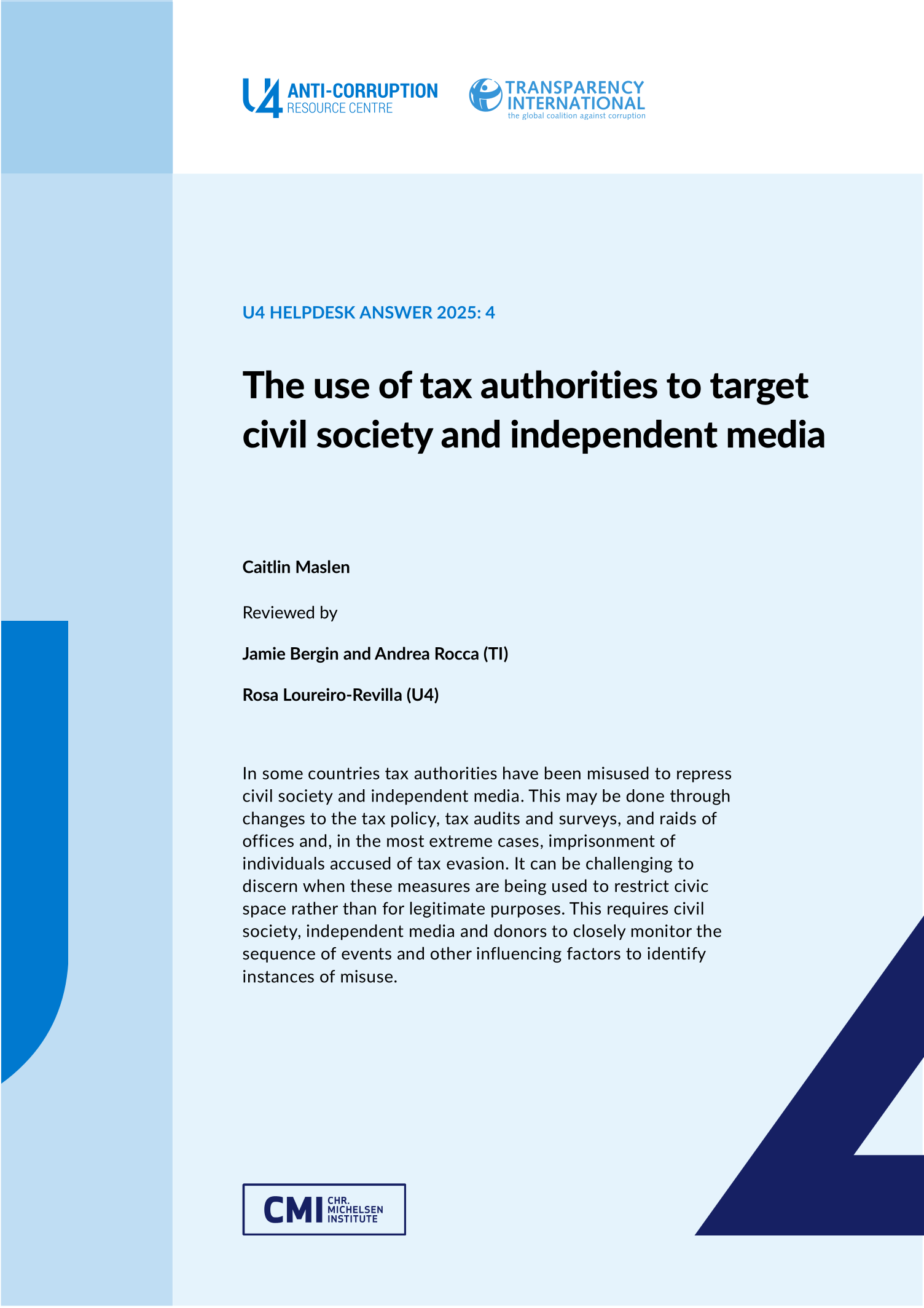Main points
- In some countries, changes to tax policy and increased scrutiny and audits by tax authorities may be used to repress civil society actors and independent media and close civic space and opposing voices. However, these are also legitimate interventions, meaning that it is difficult to distinguish when they are using them to restrict civic space or not.
- When tax authorities and tax policy are used to restrict civic space, this indicates corruption in the form of the abuse of state functions and potentially state capture.
- Nonetheless, while many countries have adopted more restrictive tax and other legislation and regulations regarding civil society, many of the laws that have been proposed have not been passed, indicating that many democracies are able to prevent such laws from passing.
- While changes to tax policies is at the discretion of the government, oversight and accountability can still be instilled through fiscal rules and the tax authority.


